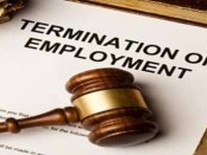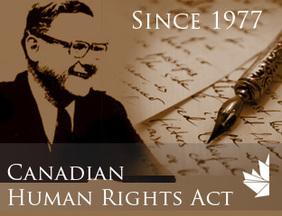
Audio Recording an Interview Without the Consent of the Officer:
Neither an employee, nor an employer, has the right to record a meeting, unless both parties agree to the recording. It is unlikely, however, that many employers would agree to this given most employers’ disciplinary procedures or grievance provisions will not expressly provide for this reciprocal agreement option.
Pursuant to the Police Services Act, respondent officers have the right to be accompanied at a disciplinary or grievance proceeding by a representative. The note-takers are important in case the technology to audio-record the meeting fails and there is then no documentation to prove what was or what was not said.
The PSA is silent on whether or not disciplinary interviews shall/may be recorded. There is potential to rely on Regulation 267/10 section 8(4) which stipulates that an SIU interview shall not be recorded by audiotape of videotape except with the consent of the officer. Inevitably, the Employer will argue this is applicable for SIU investigations only, and even then, to witness officers, as stipulated, however, the Association can counter this position by stating that there is no express provision in the PSA which permits interviews in any other context to be recorded. Therefore, this Regulation is relied upon and shall be followed. Taking this position essentially shifts the onus onto the Employer to demonstrate their authority to record in general, and even then, without the consent of the Respondent Officer.
Within the context of administrative proceedings, including grievances and arbitrations, it should be noted that even covert recordings (those whereby one party in unaware they are being recorded) have been admitted into evidence at hearings where they are directly relevant to the merits of the matter. Members should be aware of this should they participate in oral interviews. We would suggest they state their objection to being recorded, either directly or through their representatives, on the record at such meetings in an abundance of caution.
Oral vs. Written Interview Requests:
Pursuant to section 42(g) of the PSA, all police officers must perform the lawful duties that the Chief of police assigns. This pertains to all lawful orders, and officers are compelled to provide statements during an investigation as a part of these lawful orders. Unfortunately, there is no statutory provision for whether this order shall include an interview in writing or in person, and as such, it is at the discretion of the employer to determine which they require. As the member’s Association, you can facilitate communication wherein you establish the member’s preference for one or the other, however the member cannot refuse to comply without facing the risk of being charged with insubordination, absent extenuating circumstances.
Pursuant to section 64 of the PSA, the Chief shall cause every complaint to be investigated and the investigation to be reported on in a written report. This section is also silent on the method of interview, however, this matter has been addressed in the case of Gregg and Midland Police., O.C.C.P.S, 11 December 2001.
In this case, the Commission addressed the issue of whether the employer could lawfully specify the form of answers to required questions. The officer refused an order to provide verbal answers, but stated that she would answer questions in writing. The Commission upheld a conviction for insubordination, stating that it is well established that lawful commands of superior officers must be obeyed unless there is a lawful excuse for not doing so. This does not of course apply should the investigation be a criminal one, as members possess the right to refuse an interview in this regard. However, in the absence of such jeopardy, the law is clear that members must attend or face the potential charge of insubordination.
The case of Orr and York Regional Police (No. 2) 26 March 2001, also addresses this matter, in that it outlines that police officers are granted extraordinary powers at law, and as a result, are subject to a strict Code and a legislative regime that holds them accountable. This includes a legitimate public purpose in requiring them to account for their actions, by way of a written or oral statement.
Neither an employee, nor an employer, has the right to record a meeting, unless both parties agree to the recording. It is unlikely, however, that many employers would agree to this given most employers’ disciplinary procedures or grievance provisions will not expressly provide for this reciprocal agreement option.
Pursuant to the Police Services Act, respondent officers have the right to be accompanied at a disciplinary or grievance proceeding by a representative. The note-takers are important in case the technology to audio-record the meeting fails and there is then no documentation to prove what was or what was not said.
The PSA is silent on whether or not disciplinary interviews shall/may be recorded. There is potential to rely on Regulation 267/10 section 8(4) which stipulates that an SIU interview shall not be recorded by audiotape of videotape except with the consent of the officer. Inevitably, the Employer will argue this is applicable for SIU investigations only, and even then, to witness officers, as stipulated, however, the Association can counter this position by stating that there is no express provision in the PSA which permits interviews in any other context to be recorded. Therefore, this Regulation is relied upon and shall be followed. Taking this position essentially shifts the onus onto the Employer to demonstrate their authority to record in general, and even then, without the consent of the Respondent Officer.
Within the context of administrative proceedings, including grievances and arbitrations, it should be noted that even covert recordings (those whereby one party in unaware they are being recorded) have been admitted into evidence at hearings where they are directly relevant to the merits of the matter. Members should be aware of this should they participate in oral interviews. We would suggest they state their objection to being recorded, either directly or through their representatives, on the record at such meetings in an abundance of caution.
Oral vs. Written Interview Requests:
Pursuant to section 42(g) of the PSA, all police officers must perform the lawful duties that the Chief of police assigns. This pertains to all lawful orders, and officers are compelled to provide statements during an investigation as a part of these lawful orders. Unfortunately, there is no statutory provision for whether this order shall include an interview in writing or in person, and as such, it is at the discretion of the employer to determine which they require. As the member’s Association, you can facilitate communication wherein you establish the member’s preference for one or the other, however the member cannot refuse to comply without facing the risk of being charged with insubordination, absent extenuating circumstances.
Pursuant to section 64 of the PSA, the Chief shall cause every complaint to be investigated and the investigation to be reported on in a written report. This section is also silent on the method of interview, however, this matter has been addressed in the case of Gregg and Midland Police., O.C.C.P.S, 11 December 2001.
In this case, the Commission addressed the issue of whether the employer could lawfully specify the form of answers to required questions. The officer refused an order to provide verbal answers, but stated that she would answer questions in writing. The Commission upheld a conviction for insubordination, stating that it is well established that lawful commands of superior officers must be obeyed unless there is a lawful excuse for not doing so. This does not of course apply should the investigation be a criminal one, as members possess the right to refuse an interview in this regard. However, in the absence of such jeopardy, the law is clear that members must attend or face the potential charge of insubordination.
The case of Orr and York Regional Police (No. 2) 26 March 2001, also addresses this matter, in that it outlines that police officers are granted extraordinary powers at law, and as a result, are subject to a strict Code and a legislative regime that holds them accountable. This includes a legitimate public purpose in requiring them to account for their actions, by way of a written or oral statement.

 RSS Feed
RSS Feed





